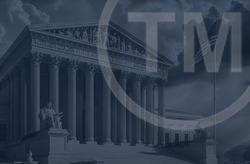On March 2, 2025, the Treasury Department made a significant announcement regarding the Corporate Transparency Act (CTA). In a move that will be welcomed by many, the Treasury Department stated, “with respect to the Corporate Transparency Act, not only will it not enforce any penalties or fines associated with the beneficial ownership information reporting rule under the existing regulatory deadlines, but it will further not enforce any penalties or fines against U.S. citizens or domestic reporting companies or their beneficial owners after the forthcoming rule changes take effect either.” Continue reading
Donna Thomas on The Daily Record’s Power List for Business Law

Donna Thomas
Congratulations to Donna M.D. Thomas on being named to The Daily Record’s Power List for Business Law. Donna is a partner at Goodell DeVries and a member of the firm’s Intellectual Property, Advertising, and Business and Corporate Law groups. She has over 30 years of experience in complex business transactions and litigation. Read her interview with The Daily Record here.
Corporate Transparency Act: New Deadline for Ownership Information Reports
The Financial Crimes Enforcement Network (FinCEN) has announced a new deadline to report beneficial ownership information (BOI) under the Corporate Transparency Act (CTA). For the vast majority of reporting companies, the new deadline to file an initial, updated, and/or corrected BOI report is March 21, 2025. Continue reading
Navigating the 2025 USPTO Trademark Fee Changes: What You Need to Know
 The United States Patent and Trademark Office (“USPTO”) recently announced a significant overhaul of its trademark filing fee structure. These changes, marked by substantial increases across various categories, will undoubtedly affect businesses seeking to protect their trademarks and brands. We highlight the key changes and impacts below. Continue reading
The United States Patent and Trademark Office (“USPTO”) recently announced a significant overhaul of its trademark filing fee structure. These changes, marked by substantial increases across various categories, will undoubtedly affect businesses seeking to protect their trademarks and brands. We highlight the key changes and impacts below. Continue reading
Intellectual Property Lawyers Named to Maryland Super Lawyers 2025
Intellectual property lawyers Jim Astrachan, Donna Thomas, and Kaitlin Corey have been selected for inclusion in the 2025 edition of Maryland Super Lawyers. Kaitlin appears in the Rising Stars section.
All are partners at Goodell DeVries and experienced intellectual property lawyers. They have been honored in Maryland Super Lawyers for consecutive years.

Jim represents clients in intellectual property law and litigation, mediation, and business, regulatory, and transactional matters. He is a frequent author and speaker and has taught IP at Maryland’s two law schools for more than two decades.

Donna represents clients in commercial and intellectual property transactions and disputes. She handles everything from multi-million dollar sales, mergers and acquisitions for publicly-traded corporations to business agreements, business counseling, advertising clearance and the clearance, registration, licensing, protection and defense of copyrights and trademarks for individuals and businesses.
 Kaitlin represents clients in negotiating business transactions and agreements, litigation involving copyright, trademark and unfair competition matters, and clearance, protection, registration and licensing of trademarks and copyrights. In addition, Kaitlin handles tax controversy matters.
Kaitlin represents clients in negotiating business transactions and agreements, litigation involving copyright, trademark and unfair competition matters, and clearance, protection, registration and licensing of trademarks and copyrights. In addition, Kaitlin handles tax controversy matters.
Reach out to any member of the group by visiting our Contact Us page.
The Perils of Secondary Liability for Copyright Infringement
 Vicarious and contributory liability are terms well-known to every tort lawyer and law student. They should also be familiar to business owners and managers.
Vicarious and contributory liability are terms well-known to every tort lawyer and law student. They should also be familiar to business owners and managers.
The legal theories of vicarious and contributory liability are well-established in copyright law and are employed to impose liability for another’s direct infringement where a third party, such as a distributor or landlord, contributed to the infringement by encouraging or providing the means to infringe, or where the party had the means to stop the infringement and benefited financially from it.
Trademarks: Only Use in Commerce Establishes Ownership
 Trademarks can be a business’s most valuable assets. Apple’s mark is estimated to be worth more than $355 billion. The Amazon mark lags behind by a hair at $350 billion.
Trademarks can be a business’s most valuable assets. Apple’s mark is estimated to be worth more than $355 billion. The Amazon mark lags behind by a hair at $350 billion.
When the value of a company’s trademark can be so high, it makes good sense to carefully develop, grow and protect marks.
Trademarks can take many forms but first and foremost a mark must serve the purpose of identifying the source of goods in the minds of consumers. Letters, numbers, domain names, abbreviations, nicknames, words, slogans, color, alone or in combination with other colors, and designs can serve as marks.
The configuration of products or packaging, called “trade dress” also can serve as a mark if not functional. Generic terms (computertraining.com) can never serve as a trademark because they remain available for anyone to use. Marks that are merely descriptive of the goods (Ever Sharp) must acquire secondary meaning, being an association in the consumers’ minds between the goods and their source.
“First come, first served” is the basic rule of acquiring rights in a mark. Ownership of a distinctive mark goes to the first to use it in commerce; ownership of a descriptive mark belongs to the first mark that acquires secondary meaning through use. Continue reading
We Have a New Team Member. Meet Jim O’Brien, Lawyer in Business/Corporate, IP, Estates and Trusts Matters

Jim O’Brien
We are pleased to welcome a new colleague. James Patrick O’Brien has joined Goodell DeVries as an associate. Jim practices in our Business and Corporate Law, Intellectual Property, and Commercial and Business Tort Litigation groups.
He represents clients involving corporate governance, business transactions, intellectual property protection and management, and commercial disputes. Jim also handles estates and trusts matters, creating personalized estate plans for individuals and families as well as guiding fiduciaries through the estate administration process after a loved one passes away. Continue reading
